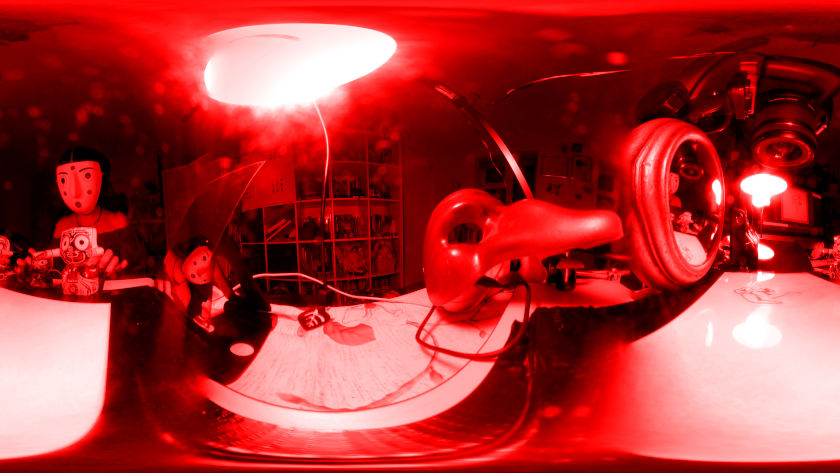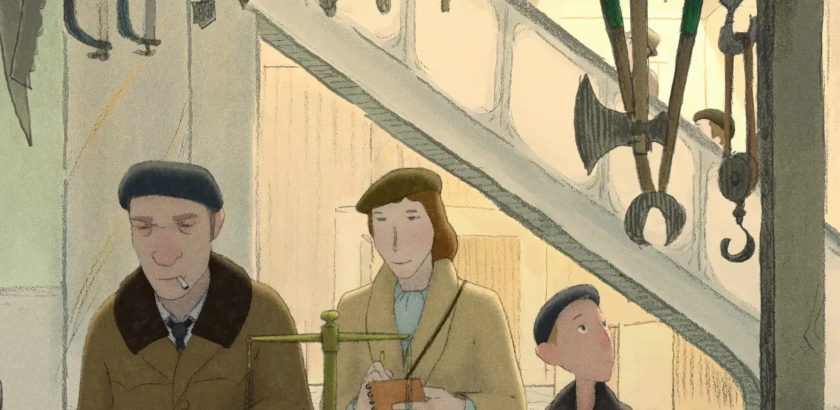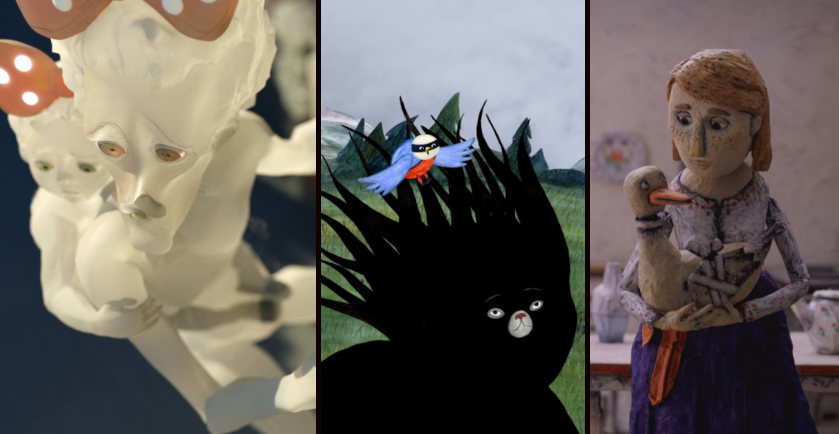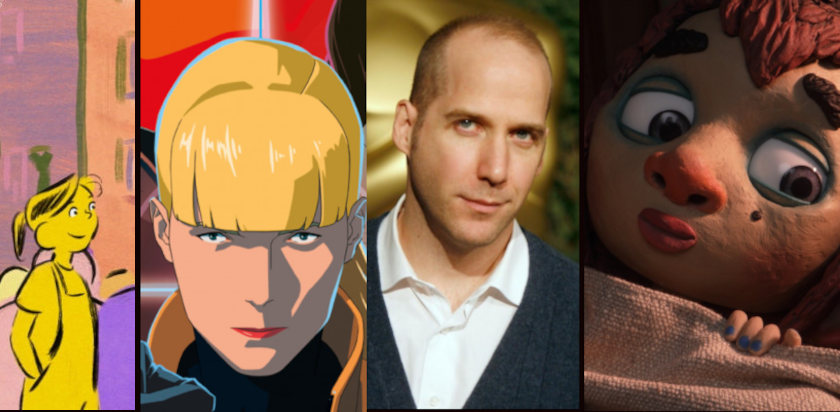"Shaping the Film Through Mutual Trust": Interview with BAFTA-Awarded Antonin Niclass (Swiss Focus @ ITFS 2025)
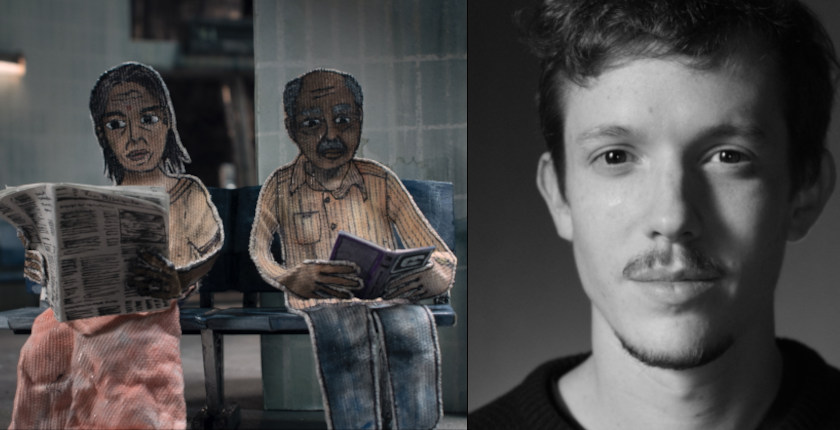
Swiss animation artist and director Antonin Niclass is one of the future indie talents to watch. He came to the forefront with the 2021 stop-motion 'Do Not Feed the Pigeons', a NFTS film and cardboard story in a coach full of strangers. The film granted him a number of festival presences and awards, including the BAFTA award for Best Animation Short. His subsequent presence was as an animator in the acclaimed short film 'Canard' by Elie Chapuis and in the Annecy-premiered stop-motion feature 'Sauvages' by the Zucchini Swiss director Claude Barras. He also took part in a number of residences, like Cinémathèque Québécoise and Animation Sans Frontières, and had his first VR experience with 'Midnight Story', an adaptation of his 'Pigeons' film, narrated by none other than Miriam Margolyes. He is now part of the programme Swiss Focus: Future Minds - Talents to Watch at the 2025 Stuttgart International Festival of Animated Film (ITFS, 6-11 May 2025), in which Switzerland is the focus country (check the trailer with the participants).
But Niclass started with live-action filmmaking studies in Belgium (Institut des Arts de Diffusion—IAD in Louvain-La-Neuve), where he studied fiction, TV documentary, and radio—but not animation. Yet his passion for animation started early.
"I first got hooked on animation as a kid, playing with the Spielberg Lego MovieMaker set with a neighbour", Antonin Niclass tells Zippy Frames (his first stop-motion experience was seeing the 90s Swiss-produced 'Pingu' animation series on his TV). "It felt magical to bring an audience - our parents and friends - into our little films". Lausanne-based Niclass found it natural to explore the world, being most observant of details of human behavior and telling stories. His film studies in Belgium were supplemented by self-made stop-motion skits in the basement with his flatmates for Swiss TV (Tataki). In turn, these skits proved instrumental when he applied to the famous NFTS to study animation.
"At the NFTS, we spent a year experimenting with short narratives - anywhere from two-day projects to month-long ones - before forming a team based on af finities developed during those exercises", he elaborates. "We started writing the film in winter and delivered it a year later. We spent days and nights at school working on it - during COVID lockdowns - which made it an intense but unforgettable experience".
The experience resulted in the 9-minute film 'Do Not Feed the Pigeons', a stop-motion film with cutouts and a painted canvas in a 3D set made out of wood and cardboard.
"The whole process started with a full night at Victoria Coach Station with the screenwriter, doing field research in January", Niclass tells Zippy Frames. "That experience stayed with us. We observed a lot of people and emotions that night - sadness, fatigue, stillness - but also a quiet kind of beauty hidden beneath the grime and rush. It was about noticing what only appears if you take the time to pause.
The shooting period (the UK's first lockdown) coincided with and resonated with the film's theme of isolation, separation, longing, and, in Niclass's words, "quiet moments of connection." Yet the 2D flat puppets had their own challenges.
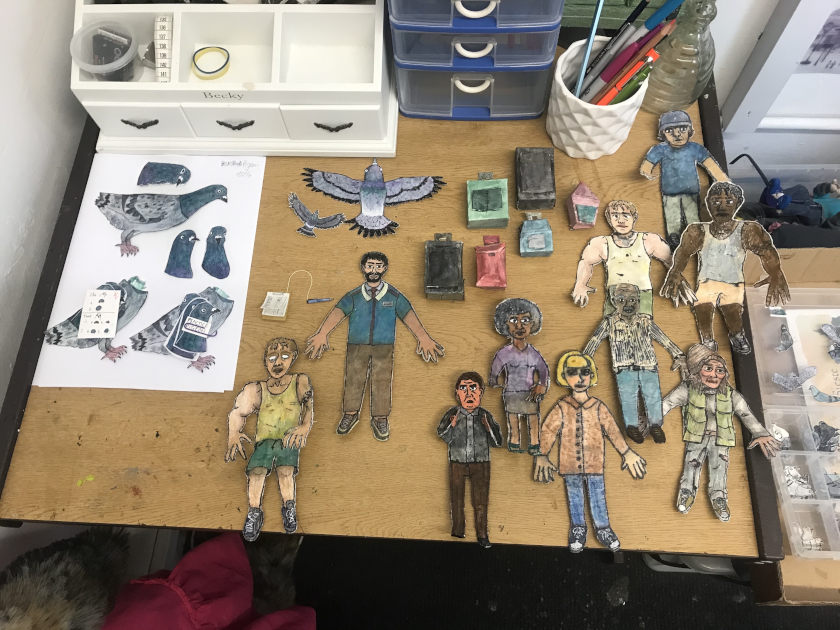
Do Not Feed the Pigeons puppets
Originally, we thought about drawing characters on found bus tickets or trash from the station. That idea evolved into using cut-out flat characters, which conveyed a sense of fragility and tactility. Being a stop-motion animator, I was just discovering 2D animation during my time at NFTS. I didn’t have much experience with drawing—my style was pretty rough, or “shabby chic,” you could say—but it was exciting to blend the flatness of 2D with the physicality of stop-motion sets.
The production itself had a sustainable vibe. "We created the entire station with the idea that everything could be made from found materials. Our production designer used recycled plastics for parts of the set. The characters were made from aluminum foil covered with canvas to give them texture and life. One of the biggest challenges was figuring out how 2D puppets could behave in a 3D space. That constant problem-solving kept the creativity alive until the very end. Story-wise, the challenge was to bring a narrative in a piece that was mostly contemplative. And not to focus on a character but rather a disparate community that experiences something as a group."
Watch 'Do Not Feed the Pigeons'
Animation is a group effort, a fact that Niclass wants to utilize in his subsequent films. But he had his own stint as an animator in projects like the stop-motion 'Canard' short film by Elie Chapuis (production: Helium Films); he animated parts of the film, while at the same rotating betweeen different departments ("I learned a lot about prop building and set design while working with the brilliant Cécile Milazzo. And Ellie has an incredible experience as an animator. I still work with some part of those people today").
Niclass also proved his penchant for learning by creating the very short film 'High Dive' (2019), a sand animation film. "This was a workshop led by the amazing Kim Noce. We had to bring a childhood memory to life. The format - a mix of 2D and stop motion - was really freeing for me. It gave me a bit more confidence with drawing, which I’d never been super comfortable with". The tactile feeling of sand comes very intuitively, and the story ("a personal memory with a beginning, middle, and end") proved rewarding. And he entered the world of VR with 'Midnight Story' ("it felt like stepping into the world we created and think about a story without "cuts" from editing").
Every creator has a personal motivation for making animation, and Niclass is no different. But, in this case, he seems to combine a strong (but nuanced) personal vision of human behavior with an equally robust need for group work and collaboration.
"That’s the part I love most: shaping the film together through mutual trust", he tells Zippy Frames. "I try to surround myself with people who resonate with the story. Once the tone is set, you quickly realise you're surrounded by people who are far more skilled than you in their own field. The real craft is learning to speak just enough of their language to communicate clearly - then giving them the trust and space to bring their full creativity into the process. Some of my most fulfilling experiences have been co-writing with screenwriters. Bouncing ideas off someone else is always what unlocks my creativity".
But this doesn't imply that the director is simply the orchestra conductor. Niclass emphasizes the indispensable importance of a strong personal connection to the characters and theme. "My approach often blends everyday poetry with a sort of anthropological look at people’s behaviour. I’m drawn to the rituals of daily life, the ways we live together, connect, and organise ourselves."
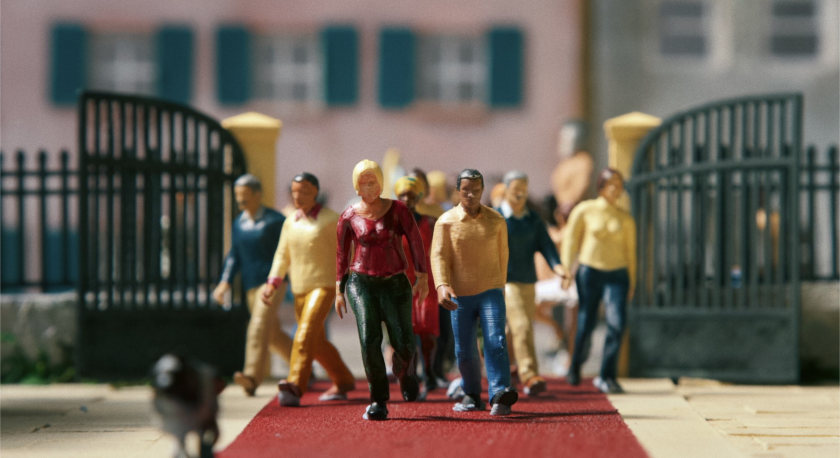
Théâtre du Passage / Short stop motion ad created by Antonin Niclass for the Théâtre du Passage in Neuchâtel, Switzerland. The characters were animated in Blender and then 3D printed and painted
Stop-motion animation, with its inherent imperfection (as humans are) and meticulous attention to details, seems the perfect medium for that. "Animation lets me highlight small gestures and objects that seem mundane but carry deep emotional weight. Whether it’s a giraffe, a lamp, or a single dot - characters are key".
Musing about Swiss master animation artists (like Georges Schwizgebel) and contemporary successful animation filmmakers like Anete Melece, Michael Frei, Marina Rosset, the Guillaume Brothers, and Claude Barras, Antonin Niclass now prepares his next steps.
"Right now, I’m shooting a short film for a young audience using the puppets from Sauvages by Claude Barras. It’s kind of a behind-the-scenes story about stop motion, where puppets wake up in a studio. There a strong emphasis on bringing kids back to the cinema and I also try to give many stop motion workshops to maybe spark something in children that could lead to a future career".
Apart from his commissioned work (check out his 'Mona Lisa' for Tataki), his other personal work is 'Je ne sais que te raconter', a short stop-motion film developed by Nadasdy film, inspired by the letters his grandmother used to send him. "For 15 years, she mailed me newspaper clippings, and at first, I didn’t really appreciate them. But as I got older - and the letters became rarer - I began to find real meaning in her ritual. I want to reflect on the quiet importance of keeping in touch in a world that often feels increasingly disconnected".
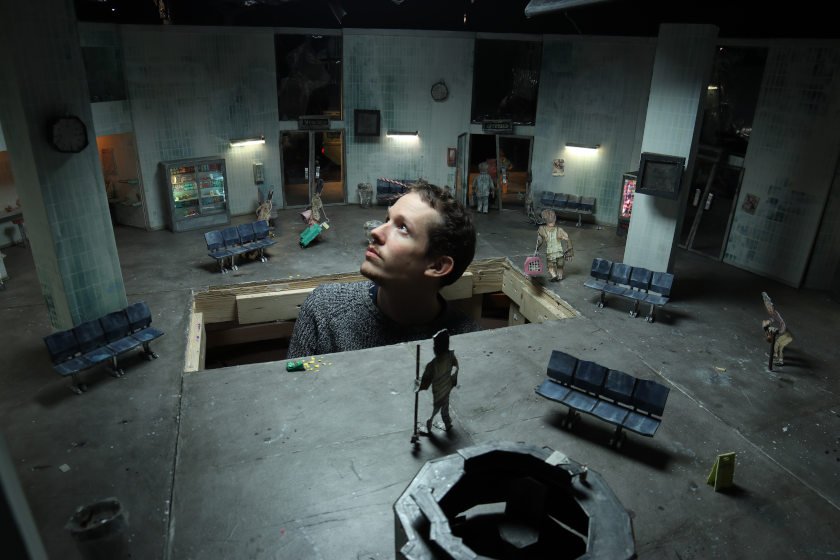
Do Not Feed the Pigeons - backstage photo
Antonin Niclass is part of the Swiss Focus prepared for the 2025 Stuttgart International Festival of Animated Film (ITFS), which will be held from 6 to 11 May 2025.




